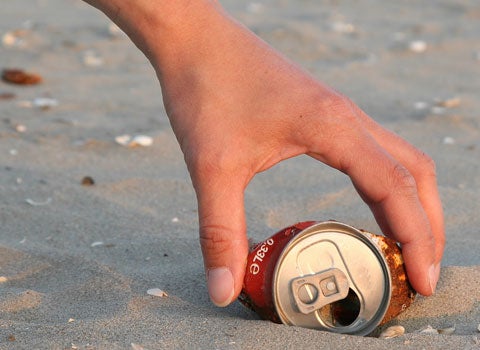
Resource Sheet
Did you know that the way our communities dispose of garbage can seriously damage water and the wildlife that uses it? Of course, it's important that we all reduce, reuse and recycle to keep our garbage to a minimum. Even so, each of us produces several kilograms of trash each week.
Much of this garbage is trucked to sanitary landfills. These sites should be carefully chosen so that wastes will not pollute our surface waters or leak into ground waters. The different types of garbage should be separated at the dump site, then the waste material covered regularly with a layer of dirt to contain it properly.
Poorly planned disposal areas, as well as unsuitably chosen landfill sites, can seriously pollute streams, lakes, or ground water. Call your local municipal office to find out where your community disposes of trash. Arrange to visit the site. Interview the responsible official to find out what pollution control measures are being used. Remember a thank-you note for the visit.
Take a Stand for Wildlife
If you suspect your waste site is a pollution hazard, you can do something about it. Ask to attend a municipal council meeting to report on your findings. First consult a biologist or fish and wildlife expert, who can tell you the ways wildlife and habitat are affected by a polluted waste site. Support from experts will give your presentation more weight.
Talk to local media about the problem, and circulate petitions to alert area residents to the facts. See if you can think of some solutions to the problem. Lobby for change and continue to monitor the situation. The changes will not happen quickly, but steady pressure from informed citizens like you can, in time, move mountains! This sort of project can be followed from year to year by a group or class.
*Toxic Tips
If you need information about any 1 pesticide chemical (how toxic it is or what non-chemical and safe alternatives exist) call Agriculture Canada's National Pesticide Information Service at 1-800-267-6315.
You will find helpful hints about safe disposal of household chemicals in the Environment Canada booklet What We Can Do For Our Environment. This excellent brochure also lists simple cleaning solutions that will not harm wildlife habitat, as well as many other environment-friendly ideas and tips. Write for a free copy to: Environment Canada, inquiry Centre, Ottawa, Ontario, K1A0H3.
